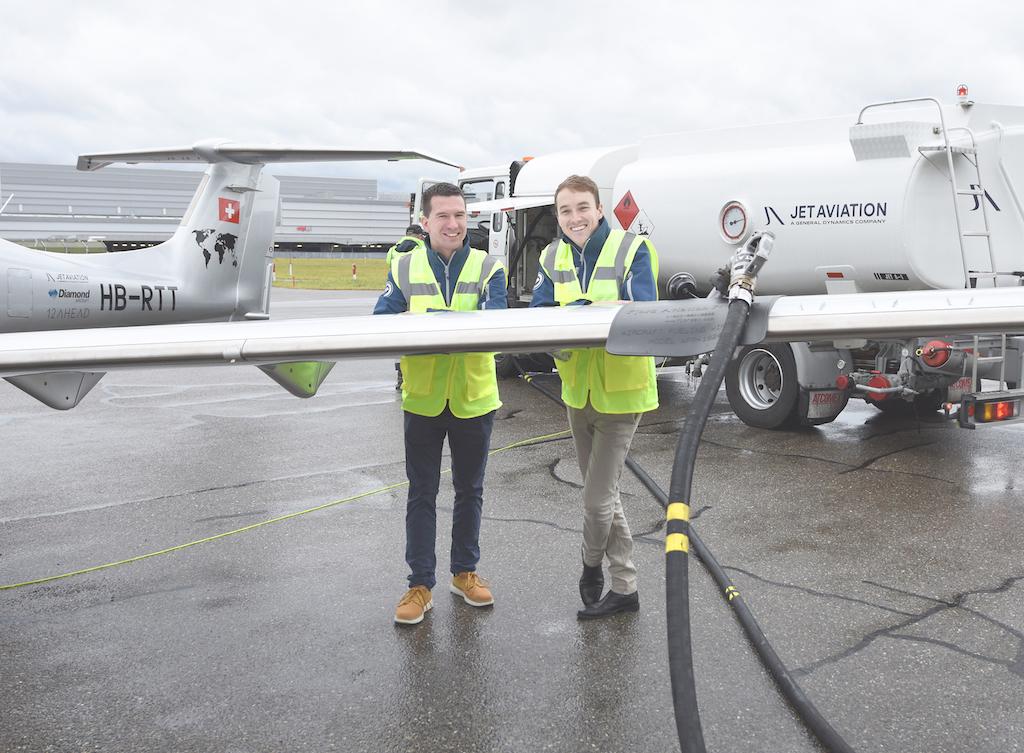
San Francisco--With growing awareness of sustainable aviation fuel’s (SAF) low carbon emissions, suppliers are encouraging SAF purchases by offering book and claim (B/C) programs. At least four companies announced them during 2021--Air BP, Signature Flight Support, Avfuel and Jet Aviation.
"Book and Claim acquisition of SAF is occurring now in the business aviation community," says Steve Csonka, executive director of the Commercial Aviation Alternative Fuels Initiative (CAAFI), a public-private partnership of airlines, airports, aircraft manufacturers, the fuel industry and government to promote the use of SAF into turbine powered aircraft.
Csonka describes book and claim as a business transaction in which an individual can book a purchase, and in return, lay claim to the attributes associated with that transaction. "A business jet operator would like to upload SAF at his departure airport, but the problem is that right now, SAF is not available at this airport. If that airport has an FBO, which participates in a B/C program, our business jet operator agrees to purchase—or book—a specific quantity of petro-jet fuel, but agrees to pay a SAF premium, which is incrementally higher than the petro-jet price. This operator then uploads the petro-jet fuel, and gets a transaction statement that indicates that for the higher price, he purchased the carbon attributes of the SAF. An equivalent amount of SAF is then delivered into the aviation enterprise system somewhere, but it is sold at a petro-jet price—and nobody else is able to claim carbon benefits from the specific quantity directly linked to the transaction. The fuel supplier, producer or FBO is responsible for keeping track."
In that regard, Csonka points out that the buyer should get a record of the transaction from the FBO. "The detail shown will allow the buyer to calculate the amount of carbon that has been mitigated for that flight, based on the fuel purchased—typically in kilograms or tons of carbon avoided—had they actually used the SAF—linked to their petro-jet purchase."
In return for paying the SAF premium, adds Csonka, the operator can claim the carbon reduction as a carbon credit or offset to a voluntary or regulatory compliance mechanism. "Most of what we are seeing today is interest by companies in using their carbon reduction credits to satisfy their ESG (environmental, sustainability and governance) commitments," he says.
Bringing B/C to SAF will drive more product availability in more places, with significant demand coming from the business aviation community.
"Business aviation it appears is less sensitive to fuel price increases than the airlines," he says. "From our perspective at CAAFI, to lower the SAF price point and make SAF more affordable, production will have to increase and the supply chain will have to be optimized. Expanded use will enable more production to come online, which will work for those entities, such as the airlines, which are more price sensitive."
Csonka confirms that there is no need for an aircraft operator to subscribe to a formal program to participate in SAF B/C, which can be activated either through long-term agreements with a fueler, or per-transaction, although some FBOs may create more formal programs.
"SAF has strong potential to reduce the industry’s environmental impact and we have noted increasing interest in it across our network in recent years," says Joao Martins, Jet Aviation’s vice president, regional FBO operations Europe, and general manager Zurich. In that regard, in December 2021, the huge Swiss-based aircraft service firm launched a B/C service, partnering with SkyNRG, which Martins calls "a global leader" in SAF and related solutions.
"The book and claim service aligns with our corporate goal of supporting reduction of the industry’s carbon footprint, further demonstrating our commitment to contributing to the United Nations Sustainable Development Goals, and strengthening our position as a leading business aviation service provider," he explains.
For fuel supply, Jet Aviation is collaborating with Neste in Europe, and World Fuel Services and World Energy in the U.S., Martins explains. Jet Aviation offers SAF at its Van Nuys, California, FBO, and, at its Amsterdam Schipol Airport FBO, under a just-signed agreement with Neste to provide SAF. "We have acted to broaden access to SAF across our global network through our B/C service, to help ensure everyone can choose to be part of the climate solution—anytime, anywhere," he says.
Interest in B/C is growing, says Keith Sawyer, Avfuel’s manager, alternative fuels. "We are seeing interest in book and claim from corporate flight departments, charter operators, fractional ownership plans and aircraft OEMs, which are using it for delivery flights," he says. Avfuel’s program is being actively promoted, with a major presentation planned for NBAA’s Schedulers & Dispatchers conference in San Diego in April.






